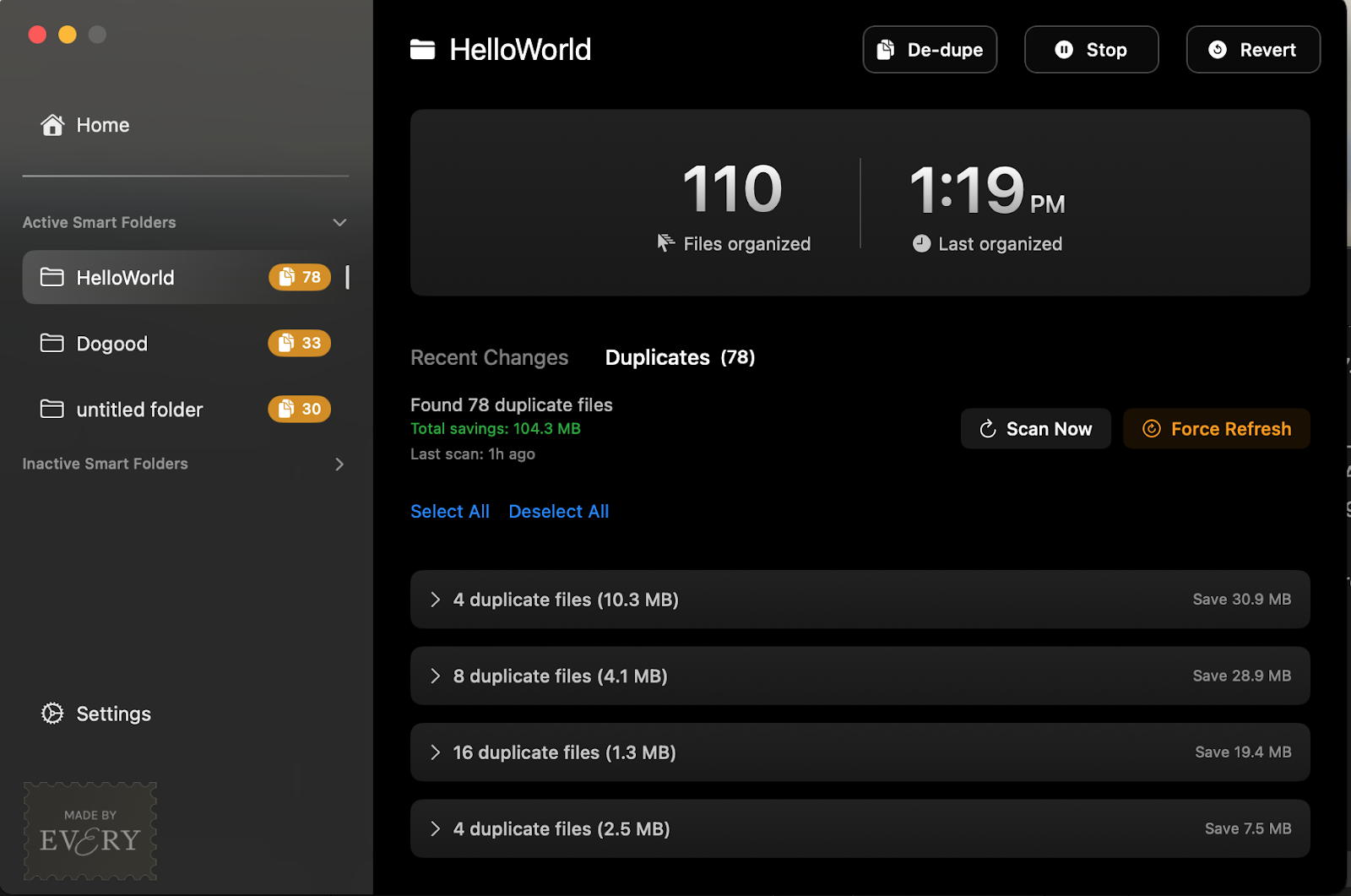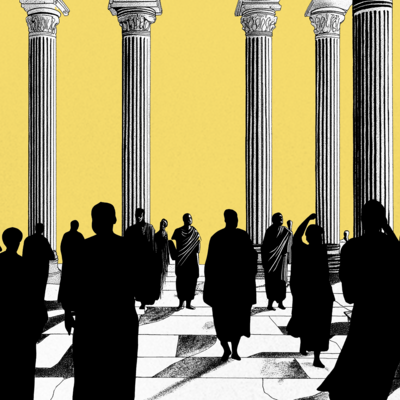
Hello, and happy Sunday! Was this newsletter forwarded to you? Sign up to get it in your inbox.
Knowledge base
"The Man Who Beat IBM" by Gareth Edwards/The Crazy Ones: In 1988, when IBM tried to reclaim control of the PC market with proprietary technology, Compaq's CEO made the unthinkable decision to create an open standard and share it with competitors—effectively giving away “the company jewels” to preserve innovation. Read this for a riveting tale of how one man's decision to prioritize openness over monopoly shaped the future of personal computing. (For more on this story, scroll down.)
"I Cloned 2,000 Hacker News Users to Predict Viral Posts" by Michael Taylor/Also True for Humans: Ever wish you could predict which of your brilliant ideas will go viral before posting them? Michael Taylor did exactly that by creating nearly 2,000 AI personas based on real Hacker News commenters and asking them to predict winning headlines. Read this for practical takeaways on using AI for market research and a prompt template to try this approach yourself.
🎧 🖥 "The Man Inside the Minds of the People Building AGI" by Rhea Purohit/AI & I: Joe Hudson, an executive coach who works with OpenAI’s leadership, believes AI will eventually replace coaching—his own livelihood—yet he's helping guide the very minds creating this future. Read this if you want to stop freaking out about AI taking your job and instead use this moment of uncertainty as a catalyst for personal growth. 🎧 🖥 Watch on X or YouTube, or listen on Spotify or Apple Podcasts.
"I Stopped Writing Code. My Productivity Exploded." by Yash Poojary/Source Code: Remember when coding meant actually typing out functions? How quaint. Sparkle general manager Yash Poojary went from manually writing every line to not touching a keyboard for weeks—and somehow built Sparkle's most requested feature in the process. Read this if you're worried about becoming obsolete in the age of AI.
Sentiment analysis
Gareth Edwards’s story about Rod Canion, Compaq, and IBM evoked a slew of memories from those who worked with him or grew up on Compaq machines (“Interesting article,” Canion commented when he shared it on LinkedIn). Here are just a few:
“This article is a fantastic look at how IBM had the legitimate opportunity to continue their monopoly and ended up not caring enough about what the actual customers felt.”
“My first job started on Amstrad PCs (1512 and 1640). Then we bought a Compaq 386, and it was just a Rolls-Royce of a machine in terms of quality.”
“A wonderful story about open standards tech, but more so about the benefits of being trustworthy and treating people well.”
“I’ve compared the design and marketing of Dungeons & Dragons 4th edition (with the OGL [open game license] acting as “DOS-compatible”) to the rollout of the PS/2. Both companies believed the strength of the brand would let a proprietary system retake market share from a commodity product.”
“A real trip down memory lane, and some massive lessons learned the hard way. Also, I was shocked to discover MS was licensing DOS from Compaq.”
“As a former Intel employee, the use of open standards in tech is obvious, but it is so hard to explain if you don’t get it. It’s often the best strategy, unless you plan on being idiotic, in which case no strategy will save you.”
“Great article, and good memories of times with a remarkable company and exceptional leaders. My first job out of college landed me more than a paycheck. That experience informed many of my own career and business decisions. The article is well-deserved recognition of true business and technical visionaries, and nice insight on the bold decisions that felled ‘Big Blue.’ Best evidence of the advice to ‘dream no small dreams.’”
“Love the further background on what was going on and the critical decisions that were made. My first job out of college was at TI [Texas Instruments] in Cypress [Semiconductor, which TI acquired in 1999] while Jim [Harris] and you were still there. Your ingenuity, leadership, and faith in your people made it such a fun ride. Thank you for enabling my career in this industry and what it provided for my family. My kids refer to themselves as Compaq Kids!”
"’We got a bad boss,’ Canion said later. ‘He just wasn't fun to work for. He wasn't a bad person! Just… not a good boss.’ For me, one of the most significant parts of your story, Rod. That sentiment has launched many alternative success paths, and yours is an incredible story.”
From Every Studio
Duplicate PDFs beware. Your Mac’s storage space can finally breathe.
Too many copies of report.pdf, report (1).pdf, and FINAL_report_REAL.pdf clogging up your Mac? Sparkle, our file management app, is here to help.
Over the years, duplicates pile up—158,000 of them, in general manager Yash Poojary’s case—quietly hogging space you didn’t know you’d lost. Now you can find and delete them with Sparkle’s Duplicate Finder.
Sparkle scans your added folders, finds real duplicate files (even when the names don’t match), and helps you reclaim up to 20GB of space with one satisfying click. With content-aware scanning, Sparkle identifies duplicates even if their file names don’t match—all locally, on your computer, without uploading your data anywhere.
Let Sparkle do the sorting, so your Mac can finally breathe. Update to v1.4.4 via settings by clicking “Check for Updates” and enable Duplicate Detection, or download. As a bonus: We're running a giveaway to celebrate. Quote-tweet this post with the weirdest file name in your Downloads folder. The most unhinged files win a free one-year subscription to Every and Every swag.
See it, squash it, ship a fix—Spiral v2 is on the way
Dan Shipper flagged a bug in our writing tool Spiral and asked Codex, OpenAI’s cloud-based coding agent, to investigate the issue. Within four minutes, Spiral general manager Danny Aziz reviewed Codex’s fix and merged the solution into the codebase—all without being sidetracked to look into the issue and patch it himself.
In the meantime, Danny is focusing on getting Spiral v2 ready. It’s opinionated about writing quality, interviews you to make your ideas stronger, and collaborates with you to build your writing confidence. Collectively, our team has racked up 2 million views on posts written with the new Spiral. If you want to be part of that growing number, fill out this form to try Spiral v2 early.
How two engineers ship like a team of 15 with Claude Code
The engineers behind our inbox management tool Cora, Kieran Klaassen and Nityesh Agarwal, shipped six features, five bug fixes, and three infrastructure updates in a single week using AI agents. Their secret? A “prompt that writes prompts” workflow that turns Claude into a force multiplier. Watch this if you want to:
- 10x your engineering output without hiring a single person
- Learn how Kieran ranks the top AI agents (with a few underrated wildcards you probably haven’t heard of)
- Steal a battle-tested workflow built for speed
Over 37,000 builders have already tuned in. If you’re building with AI, or even just AI-curious, you won’t want to miss this.—Vivian Meng
Alignment
Books gather dust. Every evening, I turn ChatGPT into a strategy consultant using The Pyramid Principle by former McKinsey executive Barbara Minto. For years I'd heard it was the bible for thinking and writing logically, presenting information in that slick way that doesn't make executives want to hurl your deck across the room. It's also the type of book that haunts me. Who has time to slog through 300 pages about “mutually exclusive, conditionally exhaustive” (MCEC) frameworks when there is life to live?
I don't. But I do have 15 minutes to make ChatGPT drill me on Minto's principles through real-life scenarios. "Give me a case where I need to present a go-to-market strategy using a pyramid structure," I'll say. Sometimes it throws a curveball: "Your CEO just interrupted. How do you defend your second supporting argument?"
I’m not memorizing theory. I'm practicing on problems that matter to my work, which makes the information even stickier in my brain. The pyramid principle is how I structure proposals now. MECE is how I break down market opportunities. This 15-minute habit has permeated everything I do or create for work—meetings, emails, strategy documents. The best part is watching my arguments land in meetings. Gone are bored faces and blank stares. Now I'm providing what stakeholders need to know, fast.
Pick that book you've been avoiding. Make AI your drill sergeant for 15 minutes a day. Practice the concepts on your problems until you forget you're using them. Barbara Minto spent decades at McKinsey perfecting this thinking. You can hack it in bite-sized sessions.—Ashwin Sharma
That’s all for this week! Be sure to follow Every on X at @every and on LinkedIn.
We build AI tools for readers like you. Automate repeat writing with Spiral. Organize files automatically with Sparkle. Deliver yourself from email with Cora.
We also do AI training, adoption, and innovation for companies. Work with us to bring AI into your organization.
Get paid for sharing Every with your friends. Join our referral program.
The Only Subscription
You Need to
Stay at the
Edge of AI
The essential toolkit for those shaping the future
"This might be the best value you
can get from an AI subscription."
- Jay S.
Join 100,000+ leaders, builders, and innovators

Email address
Already have an account? Sign in
What is included in a subscription?
Daily insights from AI pioneers + early access to powerful AI tools







.png)

.png)
Comments
Don't have an account? Sign up!